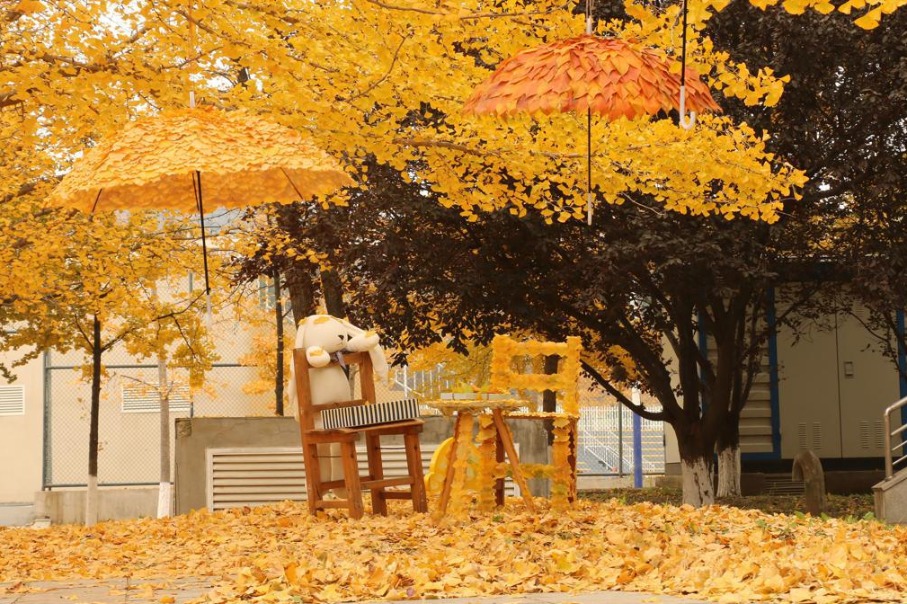Offices boost participation of public in shaping laws

Editor's note: This year marks the fifth anniversary of the introduction of Xi Jinping Thought on the Rule of Law. China Daily will publish a series of stories exploring its implementation across the country.
Upon learning that China's Science and Technology Popularization Law was set for revision last year, Liu Ersheng, a 71-year-old Shanghai native, visited the Hongqiao subdistrict in the city and submitted his suggestions to the nation's top legislature via a "direct line".
With decades of experience in promoting agricultural planting technologies, Liu recognized the critical need to engage young people in scientific and technological education, so he proposed increasing discounts for them at science museums and related destinations.
To his surprise, the Standing Committee of the National People's Congress, the country's top legislature, adopted his advice. Now, under the revised law, which took effect in December last year, youngsters can enjoy free or discounted entry to these venues.
The "direct line" that carried Liu's proposal to the highest legislative body is an outreach office established by the NPC Standing Committee's Legislative Affairs Commission in Hongqiao. To date, the number of such offices has reached 54 nationwide and these have gathered over 66,000 legislative suggestions from the public, with more than 3,500 incorporated into laws.
Shi Hongli, an official from the commission, highlighted the crucial role that these outreach offices play in facilitating legislative participation, saying that they have employed various methods such as inspection tours, symposiums, video talks and questionnaires to engage people from all walks of life.
"Public involvement demonstrates that legislation is by the people and for the people," Shi said, adding that the offices are designed to effectively address public concerns and challenges.
This people-centered approach aligns with Xi Jinping Thought on the Rule of Law, which was introduced in November 2020 at a central conference in Beijing on work related to overall law-based governance.
The thought underscores the significance of meeting people's demand, protecting their rights and constantly enhancing their sense of fulfillment, happiness and security through advancing overall law-based governance.
It stresses that legislation should be advanced in a scientific manner, with a greater focus on key areas, such as national security, public health, technological innovation and environmental protection.
Strong participation
The legislative outreach offices have been pivotal in implementing this thought, as they bridge the gap between national legislation and the public.
"They provide us with rich experiences and wisdom from grassroots communities," said Gao Lina, another official from the commission.
Students from the affiliated high school of East China University of Political Science and Law in Shanghai shared their ideas on preventing domestic violence and school bullying with the Hongqiao outreach office when the Law on the Protection of Minors was placed under revision in 2020.
At that time, the draft stated that public security departments issue warnings and require a child's guardian to pay a security deposit to the police if they are found to have committed domestic violence against the child.
"The students suggested removing that security deposit, expressing concern that the payment could place a financial burden on some families and might not effectively protect minors — in fact, it could even be harmful to their growth," Gao said. "We took their advice into account and ultimately accepted it. The students told me they felt a strong sense of participation, fulfillment and pride in contributing to the national lawmaking process after learning that their opinions had been adopted."
In Tianjin, Zhang Guixia, a retired teacher, suggested to the highest legislative body that the former residences of historical figures and historic buildings be effectively utilized, through an outreach office located in the city's Xiaobailou subdistrict.
"Fully leveraging the value of these sites will help residents better remember history and inspire patriotic enthusiasm," Zhang said when the Cultural Relics Protection Law was receiving amendment in 2023.
The amended law, which came into effect in March, incorporated her opinion. It clarifies that the country encourages research on the utilization of cultural relics and effectively uses cultural relic resources, with diverse and multilevel cultural products and services provided.
Ongoing efforts
Following these achievements, Shen Chunyao, head of the commission, said it is necessary to expand the functions of these outreach offices and stressed the need to leverage each office's own characteristics to strengthen public participation, ensuring that laws are made and modified in a scientific, democratic and legal way.
For example, since the commission established an outreach office in Beijing's Chaoyang district — the capital's most populous and largest area — in July 2021, it has gathered 4,657 suggestions. Most of them center on stimulating the economy, advancing urban construction and boosting international exchanges, which align with the district's advantages and development goals, according to Bao Yuefeng, deputy head of the standing committee of the Chaoyang District People's Congress.
"With over 300,000 registered businesses, we've prioritized economic laws, like the Company Law, Anti-Monopoly Law and Arbitration Law," Bao said. "For the Company Law alone, we gathered 421 public suggestions."
She revealed that the district now has legislative information collection sites in every community. "This initiative aims to ensure people's voices on legal matters affecting their daily lives and work are heard clearly, and to more broadly solicit their suggestions," she added.
The amended Legislation Law, which came into effect in March 2023, requires upholding a people-centered approach in lawmaking. Shen said, "This is a way to ensure, from an institutional perspective, that legislation is for the people, relies on the people, benefits the people and protects the people."
To reach the goal, the commission is planning to build more outreach offices nationwide to meet the growing demand for public participation in lawmaking. While applying digital platforms for more efficient opinion solicitation, the commission said that the offices will also promote legal education and foster a stronger sense of national community.
Focusing on key areas
In addition to adhering to a people-centered approach in the legislative process, China has accelerated its legislative efforts in key areas over the past five years, including national security, technological innovation, public health, biological security, environmental protection and risk prevention.
Notable achievements include the Data Security Law and Foreign Relations Law, alongside amendments to the Criminal Law and Counter-Espionage Law, providing robust legal support for national security and social stability, Shen said.
China now has over 40 items of legislation on national security, with relevant provisions in nearly 200 laws and administrative regulations, according to People's Daily.
The country has nearly completed its legal framework for foreign-related matters, with over 50 laws enacted by the end of last year, according to a report from the Chinese Academy of Social Sciences.
Significant efforts have also been made in formulating the Yellow River Protection Law, Wetland Protection Law, and Noise Pollution Prevention and Control Law, as well as revising the Marine Environment Protection Law and Wildlife Protection Law.
The commission is soliciting public suggestions and opinions on a draft environmental code, the country's first-ever code in this field.
caoyin@chinadaily.com.cn
- Takaichi's dangerous rhetoric revives Japan's militaristic past: China Daily editorial
- Lancang-Mekong countries vow to target telecom and cyber fraud
- China warns Japanese leader to retract erroneous remarks
- China warns Japan of 'heavy price' for any military interference in Taiwan
- Japan will only suffer a crushing defeat should it dare to take a risk: Defense spokesperson
- Offices boost participation of public in shaping laws
- Gen-Z Taiwan volunteer joins Minqin's desert afforestation efforts
- Over 20 Gen Z foreign guests to explore Baise city in Guangxi
- Japanese prime minister criticized over provocative Taiwan remarks
- Beijing's air quality improves further
- Lancang-Mekong countries vow to target telecom and cyber fraud




































